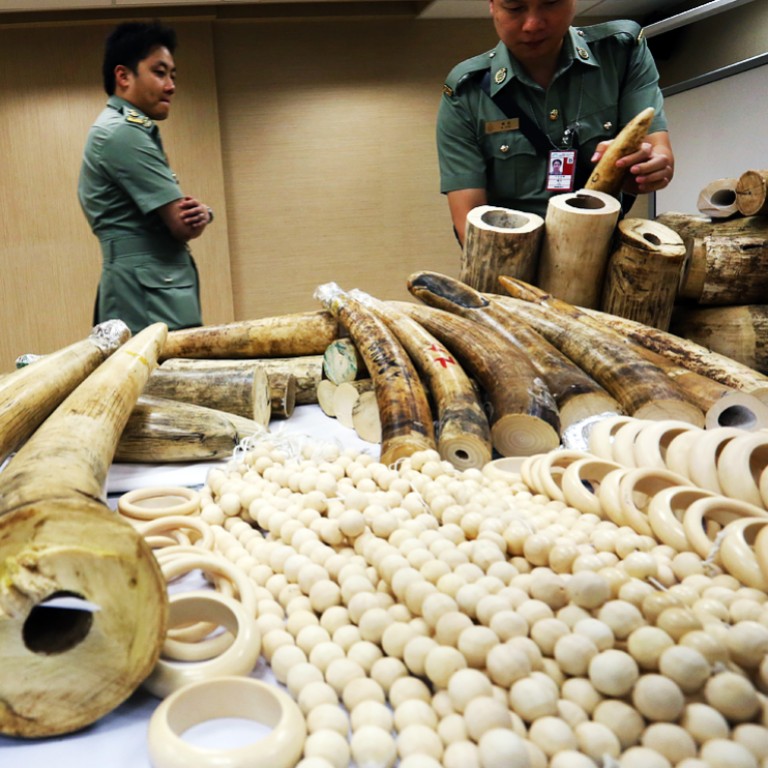
Courts in Hong Kong must get tough with illegal ivory trade criminals
Earlier this month, the Customs and Excise Department seized HK$510,000 worth of illicit ivory products. The case was transferred to the Agriculture, Fisheries and Conservation Department.
This was the second seizure within less than a week, with three more seizures in the two months before.
Hong Kong United Against Illicit Trade applauds the government for its efforts to combat the trade, but it is not the time to celebrate. The fight against the illicit ivory trade is not easy, especially when unscrupulous traders in Hong Kong are "laundering" smuggled ivory with the legal stockpile, held before 1990.
Customs and excise is considering adopting a new forensics tool to more accurately identify the year of removal of the ivory, and to update "anti-counterfeit laser stickers" for some 110 tonnes of legal ivory products imported before 1990.
While these are well-intentioned measures, there is a risk that these stickers are prone to counterfeiting, and that fake laser stickers easily fool consumers who cannot distinguish fakes from real. California and Turkey required such tax stickers to be affixed on the packaging of excisable goods. Only a few weeks after introduction, counterfeit tax stickers were seen in the marketplace.
To tackle the illicit ivory trade, more resources are required for law enforcement to increase policing at the border and at shops. Increased and mandatory penalties will prove a greater deterrent. In Hong Kong, where conviction for such a crime carries a maximum penalty of HK$5 million and two-year imprisonment, among the 42 prosecutions during 2011-2013, most resulted in fines of less than HK$60,000 (1 per cent of maximum fine), and 10 cases resulted in imprisonment of two to eight months.
A robust public education/awareness campaign will help. The public needs to know that the illicit ivory trade is not just a conservation issue but an issue of organised crime.
As indicated by Interpol, large-scale organised criminal groups are involved not only in the illicit trade of wildlife but also drugs, medicines, arms, tobacco, human trafficking, corruption, money laundering, murder, and illicit trade proceeds finance weapons and terrorism.
Buying just one illicit ivory product is giving money to these criminals. It must be stopped, here and now.

